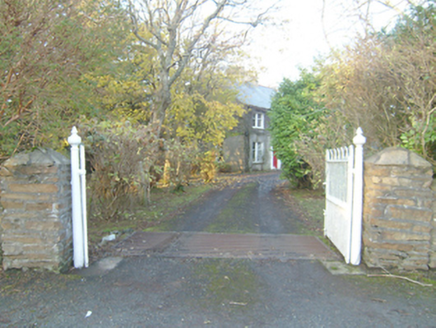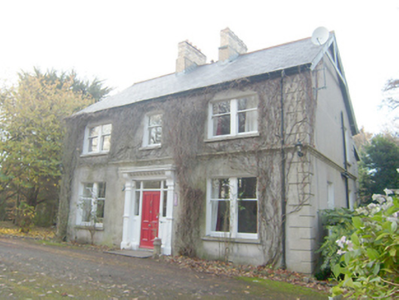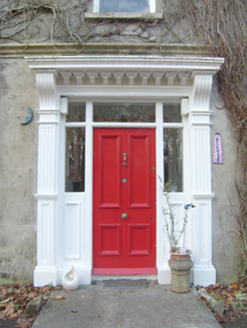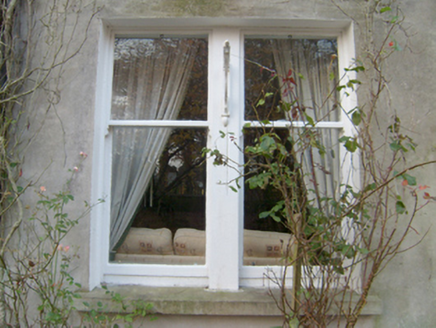Survey Data
Reg No
40812014
Rating
Regional
Categories of Special Interest
Architectural, Artistic
Original Use
House
In Use As
House
Date
1900 - 1905
Coordinates
193499, 432403
Date Recorded
22/11/2010
Date Updated
--/--/--
Description
Detached three-bay two-storey house, built 1904, on a rectangular plan. Pitched slate roof with roll moulded terracotta ridge tiles, paired yellow brick Running bond central chimney stacks on yellow brick Running bond bases having corbelled stepped capping supporting terracotta pots, collared timber bargeboards on timber purlins, and cast-iron rainwater goods on timber eaves boards with cast-iron downpipes. Rendered walls with rusticated rendered quoins to corners. Square-headed central door opening with threshold, timber mullions, and rendered doorcase with fluted pilasters on panelled pedestals supporting ogee-detailed cornice on fluted consoles framing timber panelled door having sidelights on panelled risers below overlight. Square-headed central window opening (first floor) with concrete sill, and concealed dressings framing one-over-one timber sash window. Square-headed window openings in bipartite arrangement with concrete sills, timber mullions, and concealed dressings framing one-over-one timber sash windows. Set in landscaped grounds on a corner site with cast-iron colonnette piers to perimeter having finial-topped capping supporting looped wrought iron double gates.
Appraisal
A house erected for Dr. John McDonald (1876-1947) to designs by Doolin, Butler and Donnelly (formed 1902) of Dublin (Irish Builder 27th February 1904, 122; 7th May 1904, 286) representing an integral component of the early twentieth-century domestic built heritage of An Fál Carrach [Falcarragh]. The compact rectangular plan, the robust Classical doorcase at its centre, the diminishing in scale of the openings on each floor producing a graduated visual impression with those openings showing bipartite glazing patterns, and the collared timber work embellishing the roof, all contribute to its architectural interest. The survival of much original fabric contributes to the character of a house making a pleasing visual statement in a sylvan street scene.







